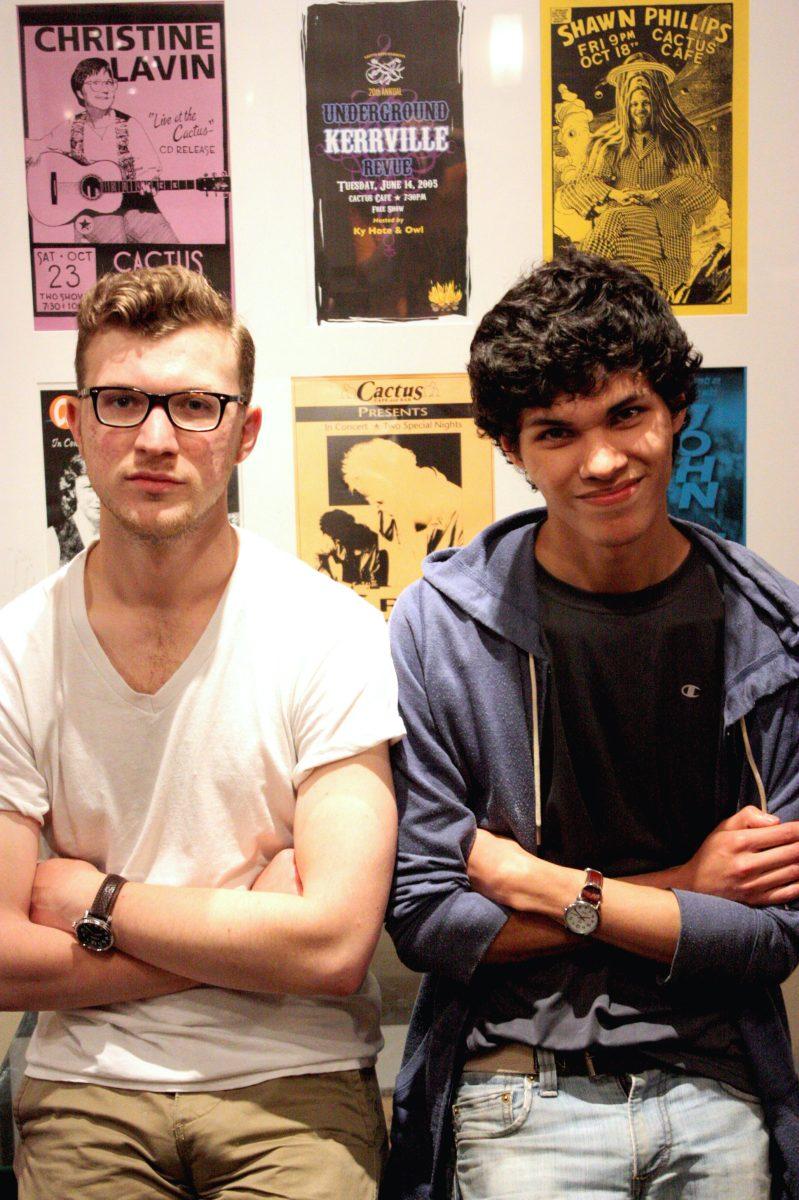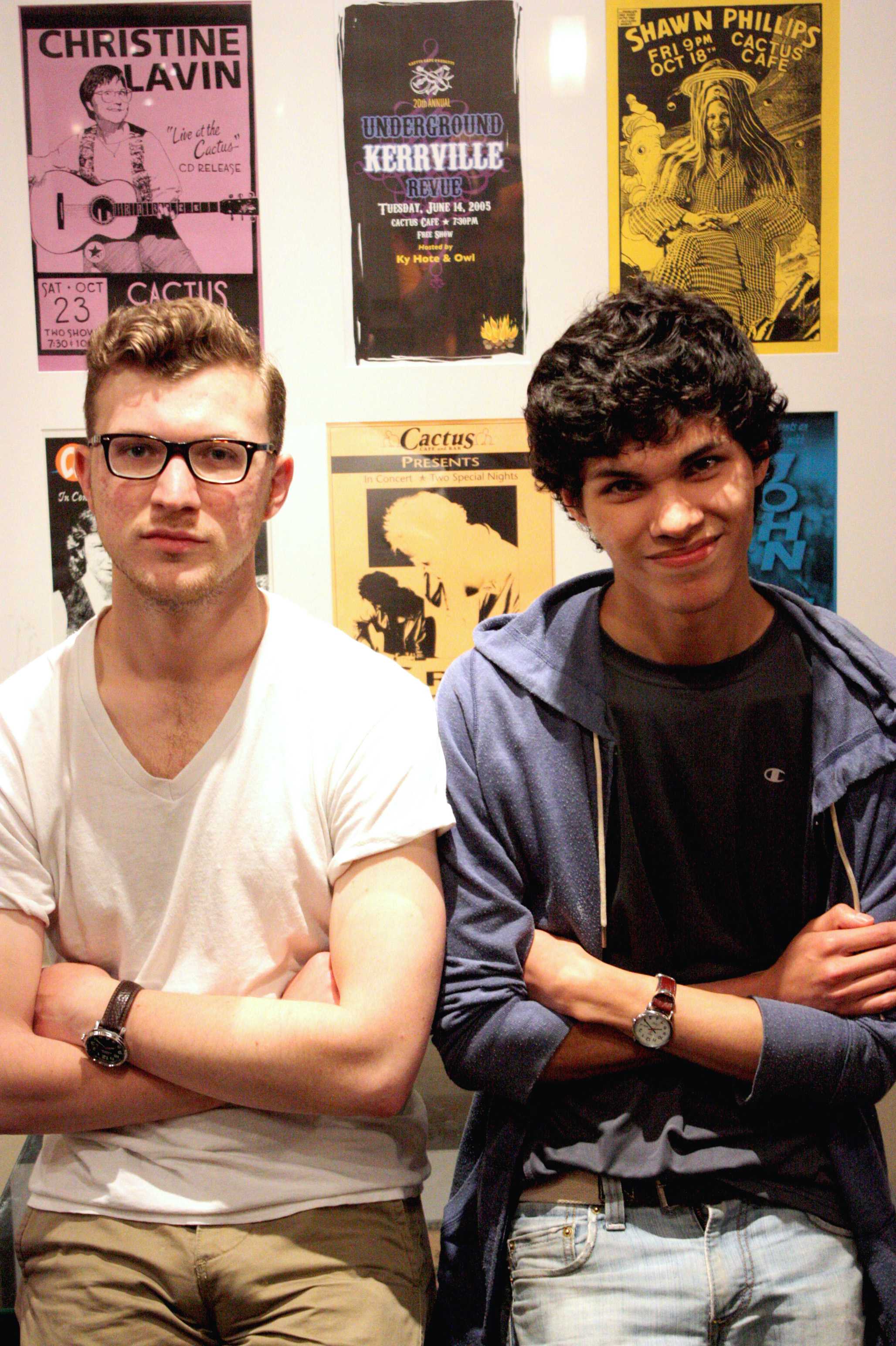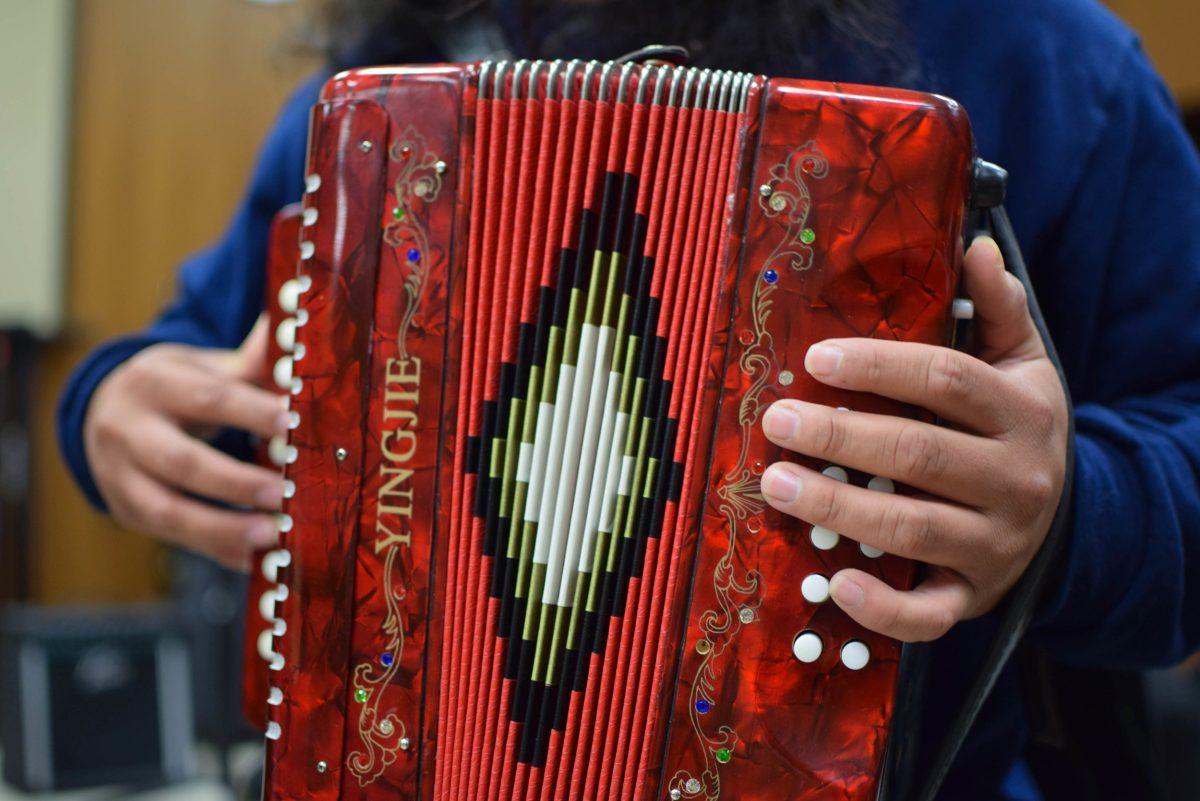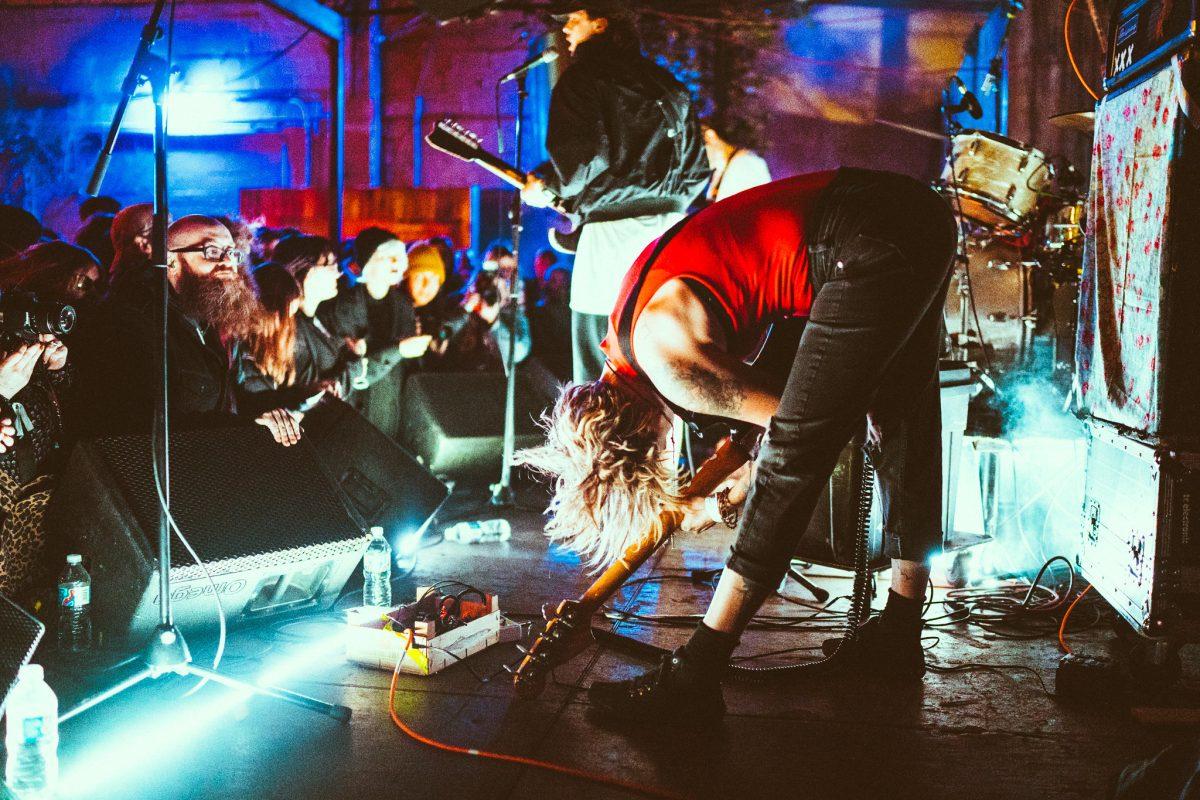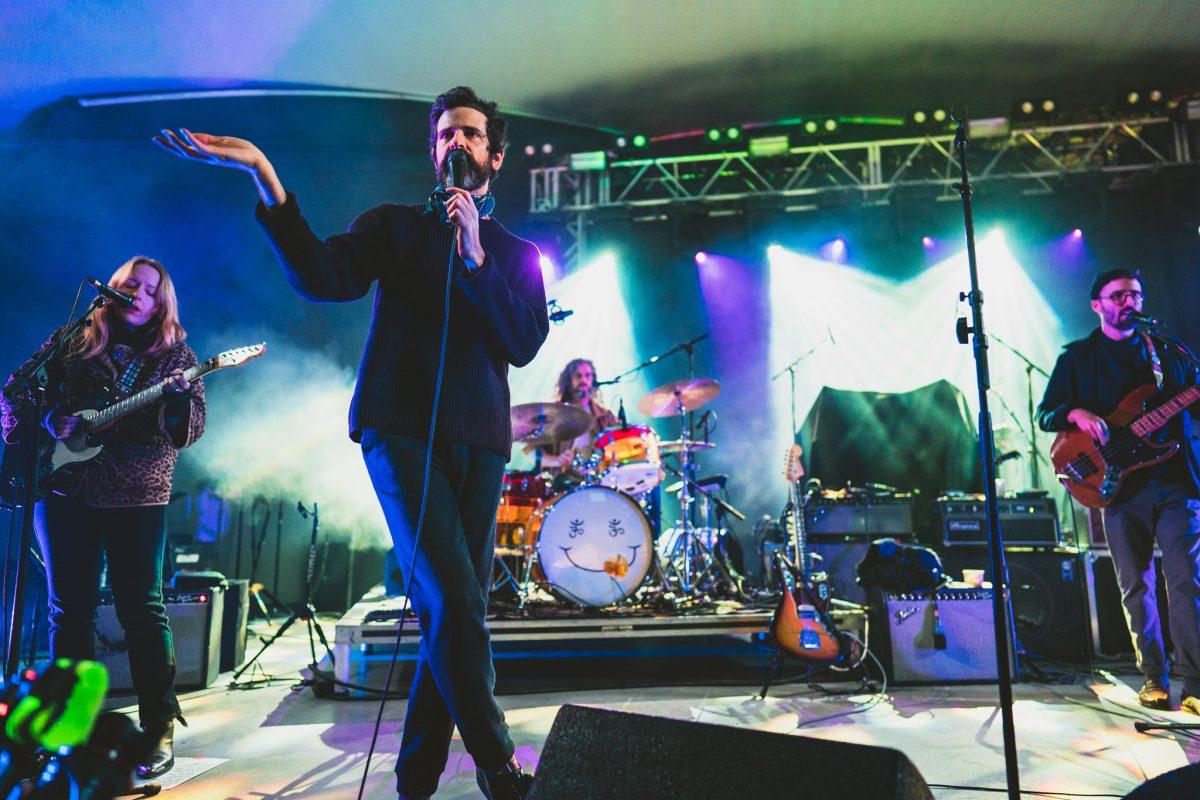What started as a group of student musicians constantly searching for band mates with similar tastes has resulted in a UT organization designed to foster a supportive community for all who seek the same.
Story by Samantha Grasso
The brainchild of marketing junior Collin McLaughlin and engineering junior Isaiah Sosa, the Musical Environment for University Students (or MEUS for short) aims to facilitate collaboration between student musicians. Registered in November of last year, MEUS focuses on “the social aspect of [playing music] and getting similarly-minded people together,” McLaughlin says. “We’re just trying to create that feel on campus, just a really positive place for musicians and music enthusiasts to get together.”
In addition to creating an environment for student musicians to meet each other and work together, McLaughlin says MEUS also shines a light on already active student bands and musicians. “The whole idea is to just promote them so they get exposure. People might not be into the co-op band scene, like kids who just live at Jester and … it’s a different scene,” McLaughlin says. He adds that the group is trying to get these types of bands on campus to provide them with an additional exposure platform.
McLaughlin and Sosa, along with fellow MEUS officers Todd Litinas and Frank Mojekwu, are in the process of planning an end-of–the-year showcase that will feature bands supported by the organization. The event is set to take place on Friday, April 25 at the Texas Union Patio from 5 p.m. to 10 p.m. “For us to be able to centralize the talent and offer [that service] to people makes the organization very valuable,” Sosa says.
McLaughlin says the idea for MEUS has its origins in a jam band he formed with Sosa and three other musicians in the fall of 2012. “Some friends and I were just looking to jam, looking for other people to play with, and we thought that there had to be some sort of musicians’ student organization, but there really wasn’t,” McLaughlin says. “There are so many people who play instruments but don’t have the means of finding other people to play with. It’s hard to find drummers and guitarists and people who might be into the same thing as you. We just wanted to provide that [facilitation] for other people.”
Sosa explains that finding a consistent and likeminded group of fellow musicians was difficult. “It gets discouraging…the fact that you’re fishing for a really long time, but with your friends. You catch a tiny fish and it’s like, ‘Meh.’…We were never really satisfied with most of the fish we caught,” he says. After working with McLaughlin in a different student organization and hearing about his ideas for the group last fall, business sophomore Sofia Moreno joined the team this semester as the Officer of Talent Acquisition to book bands for MEUS events. “The way they described it, [MEUS is] just having a place for musicians to be able to have music in their life without it being necessarily their major, and still draw connections from music between their everyday lives,” Moreno says.
But MEUS is more than just a group that holds glorified jam sessions. Along with facilitating a collaborative musical environment, promoting acts and hosting events, the group’s officers seek to work with other organizations such as UT’s Voices Against Violence to provide a deeper impact for social causes through music. Sosa is even developing outlets for music enthusiasts to contribute to the sustainability of the organization, regardless of their own playing ability. “I think that’s the way I’ve chosen to solve the problem of non-musicians [needing a way to participate]. If they don’t play then they can contribute their talents to helping [musicians] do their thing,” he says.
While MEUS’s first showcase is this month, this isn’t their first trial at hosting a large event on campus. In February, the team made plans to host “MEUS Lift Off,” a daytime showcase at the Texas Union Patio, in celebration of the organization’s unveiling. The concert was to feature six local bands and be free to public, and any donations collected would go to Voices Against Violence. “It was really our plan to hit the ground running and get ourselves exposed,” McLaughlin says. “We actually had people reaching out to us about the event, people I had never met, which was a really cool feeling. I met with somebody, had a consultation about our event, and she approved the event.”
Despite taking the necessary steps to get “MEUS Lift Off” approved by a Union employee, McLaughlin was surprised to find out details such as electricity usage and quiet hours were overlooked when he arrived on the day of the event. “Turns out, there’s a lot more stuff involved in even what was explained to us,” McLaughlin says. For these reasons, MEUS had to cancel the debut showcase. While he says it was a hassle to have to contact the bands on the day of the performance and explain why it was being cancelled, McLaughlin says they understood and were compassionate about the situation and asked to be contacted again for MEUS’s next event. “It was still a good learning opportunity,” Moreno says about the last-minute cancellation. “The benefit of it not happening is we can just make a newer, better version of it,” she adds.
Looking toward the future of MEUS, McLaughlin and Sosa already have a few technological components to test out over the summer. Although they do not reveal anything specific, McLaughlin alludes to a previous idea they had to create a paper directory for MEUS members. “We have some exciting things that I’m not going to disclose,” McLaughlin laughs. “I know it sounds kind of weird, but it involves lots of technology.”
For more information on MEUS, email [email protected].































